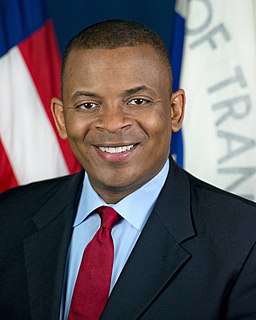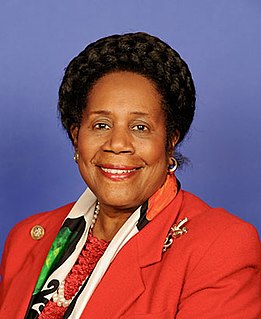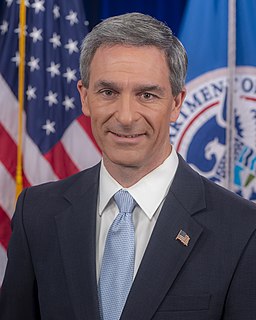A Quote by Anthony Foxx
No one respects the First Amendment more than I do. People have a right to express their concerns and their hopes and dreams to their government.
Related Quotes
...The Bill of Rights is a literal and absolute document. The First Amendment doesn't say you have a right to speak out unless the government has a 'compelling interest' in censoring the Internet. The Second Amendment doesn't say you have the right to keep and bear arms until some madman plants a bomb. The Fourth Amendment doesn't say you have the right to be secure from search and seizure unless some FBI agent thinks you fit the profile of a terrorist. The government has no right to interfere with any of these freedoms under any circumstances.
To those who cite the first amendment as reason for excluding God from more and more of our institutions and everyday life, may I just say: The first amendment of the Constitution was not written to protect the people of this country from religious values; it was written to protect religious values from government tyranny.
Now I realize it's fashionable in some circles to believe that no one in government should encourage others to read the Bible. That we're told we'll violate the constitutional separation of church and state established by the Founding Fathers and the First Amendment. The First Amendment was not written to protect people and their laws from religious values. It was written to protect those values from government tyranny.
At first glance, an alliance of anarchists and government might appear to be somewhat paradoxical. But the formal convergence in Oakland makes explicit the movement's aims: They're anarchists for statism, wild free-spirited youth demanding more and more total government control of every aspect of life - just so long as it respects the fundamental human right to sloth.
In the first place, the government ought not to be invested with power to control the affections, any more than the consciences of citizens. A man has at least as good a right to choose his wife, as he has to choose his religion. His taste may not suit his neighbors; but so long as his deportment is correct, they have no right to interfere with his concerns.
The First Amendment of the Constitution was not written to protect the people from religion; that amendment was written to protect religion from government tyranny. . . But now we're told our children have no right to pray in school. Nonsense. The pendulum has swung too far toward intolerance against genuine religious freedom. It is time to redress the balance.
The Constitution, in addition to delegating certain enumerated powers to Congress, places whole areas outside the reach of Congress' regulatory authority. The First Amendment, for example, is fittingly celebrated for preventing Congress from "prohibiting the free exercise" of religion or "abridging the freedom of speech." The Second Amendment similarly appears to contain an express limitation on the government's authority.
I understand that unless you have a government of laws, rather than a government of people, you cannot protect dissent. And I understand, as a woman who probably would have been burned in the marketplace for witchcraft only about 200 years ago, that I need the First Amendment more than anybody does. And that even if I am repelled by child pornography or Bob Guccione's productions, that I have to protect those things, because essentially it's in my self-interest to do so.
It is the fundamental right of every American, as guaranteed by the first amendment of the Constitution, to worship as he or she pleases... This legislation sets forth the policy of the United States to protect and preserve the inherent right of American Indian, Eskimo, Aleut, and Native Hawaiian people to believe, express, and exercise their traditional religions
There is this fashionable progressive notion that everything is so completely political that the idea we could have some sort of neutral legal process is practically utopian - because we all know that the more money you have, the more rights you can exercise in this society. But I don't think that you deal with income inequality by limiting the First Amendment rights of affluent people. I'd rather see people screw around with the tax code to redistribute wealth a little bit than screw around with the First Amendment.
Nowhere else in the Constitution does a "right" attributed to "the people" refer to anything other than an individual right. What is more, in all six other provisions of the Constitution that mention "the people," the term unambiguously refers to all members of the political community, not an unspecified subset... The Second Amendment extends, prima facie, to all instruments that constitute bearable arms... The very text of the Second Amendment implicitly recognizes the pre-existence of the right and declares only that it "shall not be infringed."
































